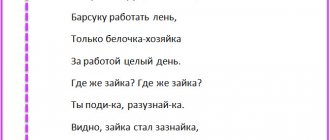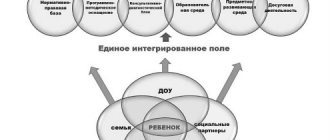Consultations for parents of the senior group “Spring without vitamin deficiency”
Consultations for senior parents
"Spring without vitamin deficiency"
The sun's rays are warming the air just like spring. It would seem - live and be happy! However, it becomes harder and harder to tear your head off the pillow, and there is almost no strength left for anything. Is this a familiar picture? Meet His Majesty Avitaminosis. And, unfortunately, vitamin deficiency in the spring in children is no less common than in adults.
And under no circumstances should this matter be left to chance, without attaching special significance to the problem. After all, a child’s body is growing rapidly, which means it needs vitamins constantly. And the lack of vitamins, minerals and microelements has a very negative effect on the development of the child and on the functioning of all organs and systems of his body. And it is difficult to predict what complications vitamin deficiency may cause for a child.
Doctors advise
Parents should immediately sound the alarm if they discover problems in their child such as:
1. Increased fatigue of the child. Attentive parents will definitely notice that the child begins to get tired quickly and tries to lie down all the time. Older children may experience problems with school performance, absent-mindedness, and memory impairment.
2. Sleep disorders. Vitamin deficiency can make itself felt by sleep disturbances. Some children may experience increased sleepiness, while others may experience insomnia.
3. Problems with gums. Another very reliable sign of vitamin deficiency is often bleeding gums. Moreover, in severe cases, blood remains not only on the toothbrush, but even on soft food. In this case, parents should seek medical help as soon as possible.
4. Colds. If a child begins to get colds frequently, parents should also think about the possibility of vitamin deficiency. Unfortunately, very often parents attribute a child’s illness to a weakened immune system. And no one connects these two concepts - vitamin deficiency and weakened immunity - with each other. And in vain. By the way, it is the lack of vitamin C that leads to a decrease in the functioning of the immune system.
And remember that in spring the problem of vitamin deficiency is especially acute. Therefore, manifestations can develop extremely quickly. Take care of vitamin deficiency prevention in a timely manner. Moreover, you shouldn’t forget about the rest of the family either.
Vitamin and mineral complexes
Of course, there is a solution to this problem, and it is very close. Modern pharmacology offers a variety of different vitamin complexes. In principle, vitamin-mineral complexes became available to people relatively recently - about 50 years ago. This is exactly what opponents of pharmacological vitamin preparations operate on: “After all, people used to live without vitamins, and nothing! And such a word as vitamin deficiency was not a priori in the arsenal of doctors of those times.”
And indeed – the concept of “vitaminosis”
did not have. But there was such a terrible disease as scurvy. The obligatory companions of such a disease were severe loss of strength, lethargy, loss of teeth, various massive bleeding, and, as a sad result, the death of a person. But scurvy is nothing more than the last stage of vitamin deficiency.
Therefore, one should not reject the achievements of modern pharmacology. However, you shouldn’t go to the other extreme either - vitamins are not candy, and you should never eat them uncontrollably. An overdose of vitamins is no less dangerous for a child’s body than its deficiency. All vitamin and mineral complexes should be prescribed to a child by his attending physician - a pediatrician who is aware of the child’s health status and his individual characteristics.
Proper diet
However, vitamin-mineral complexes are not the only panacea. It is very important to properly balance your child’s diet. In spring it should be enriched with products that contain large quantities of vitamins and microelements.
Dairy products should make up at least 40% of the total diet. Moreover, all dairy products are relevant - milk, kefir, fermented baked milk, sour cream, yoghurts. Of course, you should give preference to products that do not contain artificial colors. Milk contains a large amount of calcium, which promotes the absorption of all other vitamins.
It is also necessary to ensure that the child’s diet contains a sufficient amount of animal protein. It is simply necessary for the full development of the child and the functioning of his body. But do not forget that all meat dishes for a child must undergo thorough heat treatment.
• All kinds of dried fruits
All dried fruits are very rich in vitamins such as A, B1, B2, B3, B5, B6. And there are also quite a lot of mineral elements - sodium, phosphorus, magnesium, calcium, and iron. Dried fruits are quite sweet, so almost all children, without exception, love them. It is unlikely that you will have a problem with how to get your child to eat dried fruits.
A child can eat dried fruits just like that, but it is much wiser to prepare a vitamin mixture for him. It is prepared as follows: take equal parts of prunes, raisins, figs and dried apricots. Pass them through a meat grinder, add the same equal parts of honey and lemon. Mix the mixture thoroughly and place in a glass container, which should be stored in the refrigerator.
If a child is prone to frequent colds, you can add either one part of aloe leaves or one ampoule of aloe extract to the resulting vitamin mixture. The mixture can be given to the child simply with spoons, or it can be spread on bread or cookies - the effect will be the same. A child should eat a vitamin mixture per day at the rate of one teaspoon for every ten kilograms of weight.
• Raw beets and seaweed
Seaweed and raw beets can be practically invaluable sources of iodine for a child. Of course, these products have a very unique taste, and getting a child to eat such a salad can be a difficult task. However, you can still try. And for adults, this option may be optimal.
• Celery root
Celery is generally an indispensable assistant for parents in the fight against vitamin deficiency. It contains huge amounts of potassium and iron. In addition, it has another pleasant feature - a pleasant taste. Despite the fact that children most often do not like any seasonings, dishes made from celery root are always in high demand among them.
Moreover, you can use absolutely anything - celery root, passed through a meat grinder, celery juice. You can add celery to the first and second courses of the children's menu in unlimited quantities. In this situation, there is no need to be afraid of an excess of vitamins - all excesses will leave the child’s body without any negative consequences.
• Rose hip
Rose hips are popularly called “treasury”
vitamins for a reason - it contains vitamins such as P, K, E, B2, and C. In addition, rose hips contain essential oils, citric and malic acids and carotene in large quantities. And, of course, rose hips contain a huge amount of essential vitamin C - 30 times more than lemon.
Of course, you won’t find fresh rose hips in spring, but you can buy dry rose hips in almost any pharmacy. You can brew rose hips as tea, or you can make decoctions from it - and your child will certainly receive all the vitamins he needs. If you are brewing rose hips as a simple tea, then simply grind it and place it in a teapot, like a regular tea leaves.
However, remember that you should not take multivitamin complexes and vitamin decoctions at the same time, without the consent and approval of your doctor. Otherwise, an overabundance of certain vitamins is possible.
Be healthy and enjoy spring!







